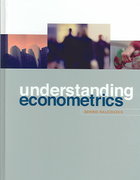Question
Suppose there is a duopoly in which two firms producing two goods that are perfect substitutes face the following demand and costs: Inverse Demand: =
Suppose there is a duopoly in which two firms producing two goods that are perfect substitutes face the following demand and costs: Inverse Demand: = 100 1/2 where = 1 + 2
Costs: 1(1) = 101 implying a constant marginal cost of $10 (1 = 10) 2(2) = 102 implying a constant marginal cost of $10 (2 = 10)
A)Suppose initially that these firms engage in Bertrand Competition. 1) What is the equilibrium price?
2)What is the equilibrium quantity () in the market?
3)What is the total Profit in the market?
B)Suppose instead that these firms engage in Cournot Competition. The information in the question implies that marginal revenue equations for the two firms are the following: 1 = 100 1 1/22
2 = 100 2 1/21
1)What is the equilibrium quantity (, the sum of each individual frim quantity) in the market?
2)What is the equilibrium price?
3)What is the total Profit (, the sum of each individual firm profit) in the market?
C)Now suppose that the firms successfully collude as a perfect cartel. Their strategy is to choose total industry output () to maximize total industry profit (), and then split that maximized profit. Total industry revenue is = = (100 1/2), which implies = 100 .
1)What is the equilibrium quantity () in the market?
2)What is the equilibrium price?
3)What is the total Profit () in the market?
D)Compare and contrast your findings from parts a through C?
Step by Step Solution
There are 3 Steps involved in it
Step: 1

Get Instant Access to Expert-Tailored Solutions
See step-by-step solutions with expert insights and AI powered tools for academic success
Step: 2

Step: 3

Ace Your Homework with AI
Get the answers you need in no time with our AI-driven, step-by-step assistance
Get Started


